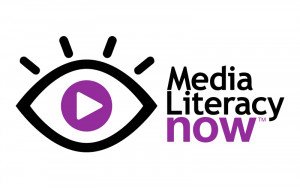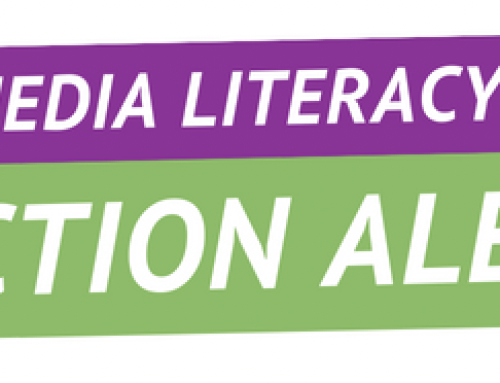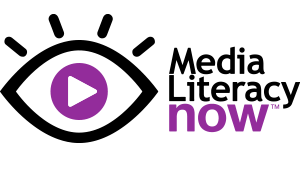Dec. 6 – In Illinois, a legislative mandate for media literacy education in high schools has brought together educators and advocates to implement the new law and support schools.
“Our model for an integrated policy solution is working in Illinois” said Erin McNeill, president of Media Literacy Now. “We believe that when policymakers act to elevate media literacy as a priority, that gives a boost to advocates, educators, and the community who can then come together to make change at the classroom level.”
The Illinois Media Literacy Coalition is a collective of teachers, librarians, administrators, practitioners and scholars who are working to support the implementation of the law passed in 2021, requiring media literacy units to be taught in Illinois high schools. Through guidance and training, ILMLC is advancing media literacy education in the state of Illinois.
“We’ve made substantial progress, through bringing together educators, scholars, and community members, in preparing schools to meet the mandate in the new law,” said Michael Spikes, coalition co-founder and lead Illinois advocate for Media Literacy Now.
The coalition is making change through three ongoing initiatives. The first is the distribution of the coalition’s two resources: The Framework – which has been adopted into the Illinois State Board of Education Standards and Instruction resource – through local education conferences and trainings in various school districts, including Chicago Public Schools; and the innovative Crosswalk, which showcases how media literacy competencies align with different subject matters such as English language arts, social and emotional learning, science and engineering, computer science, social science, and library and information science.
“Collaborating on local approaches to integrating media literacy into multiple disciplines is an essential part of our work,” Spikes said. The coalition also emphasized that its model can be customized and replicated in other states.
Secondly, the coalition has partnered with the University of Illinois at Urbana-Champaign on its Initiative for Media Education Inquiry and Action (IMEDIA). The project provided training to teachers around the state through an in-person 2.5-day media education institute this June, and has conducted research on how teachers in Illinois currently conceptualize and use media literacy in their classrooms. Preliminary results from this first research project was presented at the annual meeting of the National Communications Association in November.
Thirdy, the ILMLC is working with its one hundred members to develop localized projects that utilize their unique knowledge of their communities to build media literacy skills using the ILMLC framework for media literacy toward scaling the impact of our framework around the state.
“We are looking to localize the various opportunities for professional development and advocacy to meet the needs of each community,” said Dr. Yonty Friesem, co-founder of ILMLC and associate director of the Media Education Lab. “By offering the options of in-person, hybrid, and online training, we hope to reach as many educators in the state as we can.”
ILMLC members, for example, are exploring means for connecting community colleges with local high schools to conduct collaborative research and training opportunities for teachers to learn more about their approaches to media literacy and to find means for implementing ILMLC’s media literacy framework as part of their existing practices.
Illinois’s media literacy law, sponsored by Rep. Lisa Hernandez and enacted in 2021 as a result of the groundwork of MLN lead advocate Alicia Haywood and civil rights lawyer Maaria Mozaffar, together with the Association of Illinois School Library Educators (AISLE), requires high schools to implement media literacy lessons as of this school year. Rep. Hernandez also credits the advocacy of high school student Braden Hajer of Naperville.
“Students can and should get involved in shaping the educational experience that will serve them in life,” said McNeill. “Legislators care about young people’s future and want to hear from them directly about their experiences. We’ve seen that when students speak on the need for media literacy education, lawmakers listen, as when Braden Hajer stepped in to add his voice.”
For more information visit ilmlc.org


